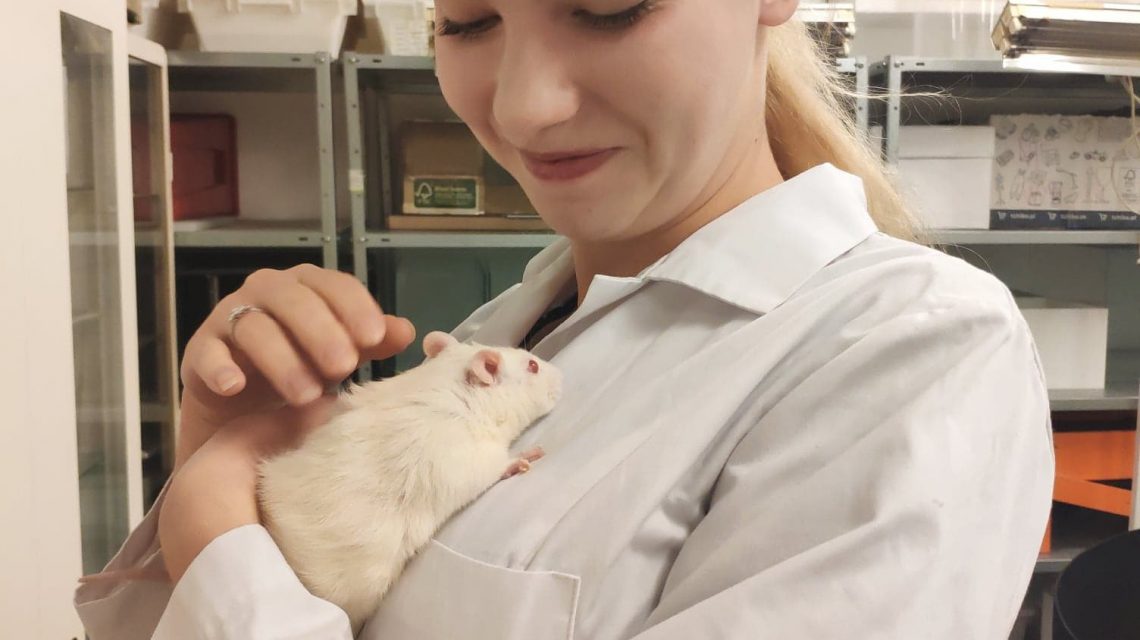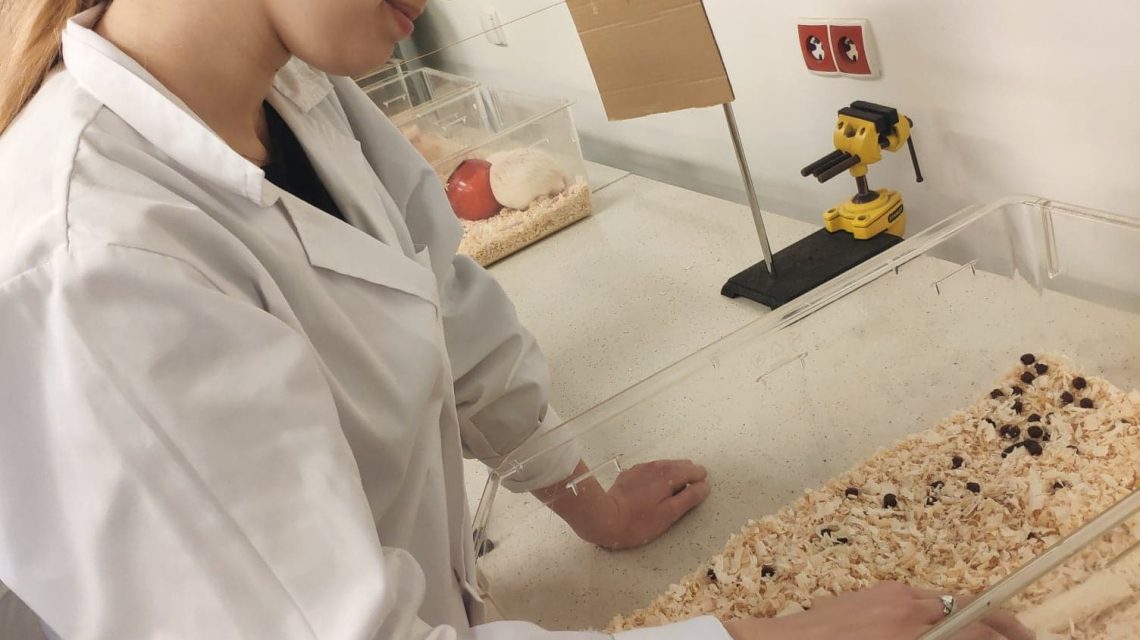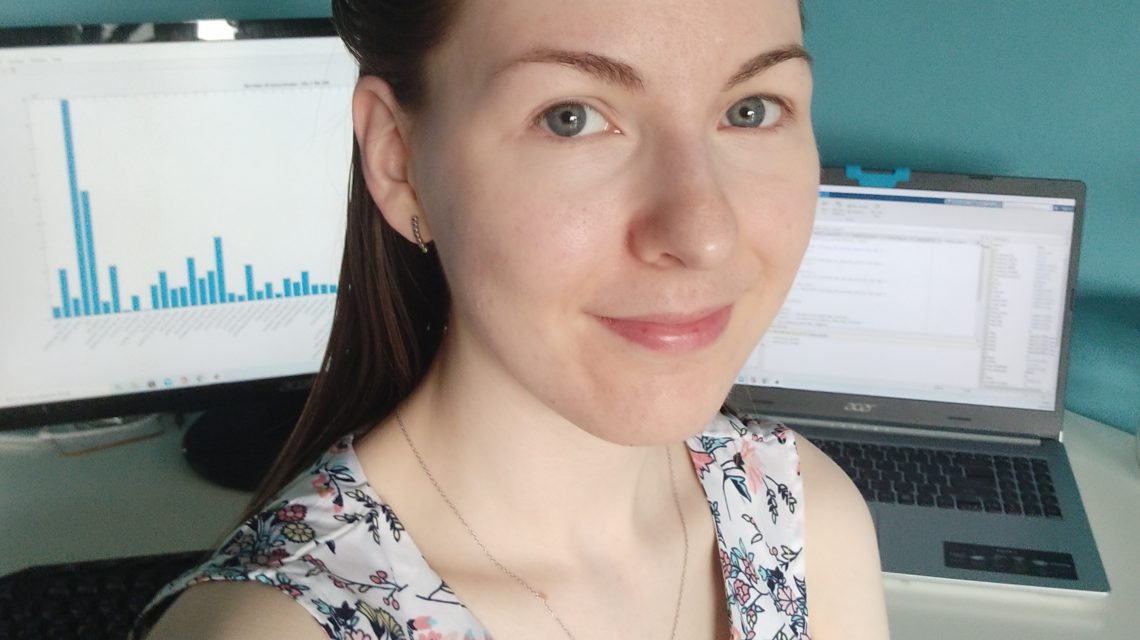New student projects to help us ‚crack the code’ of verbal memory and predict its recall from eye movements 22 września 2020 – Posted in: News – Tags: 2020, BME Lab, Brain Stimulation, Mayo Clinic, Memory, Neuroscience, Poland, Rochester MN, Science, USA
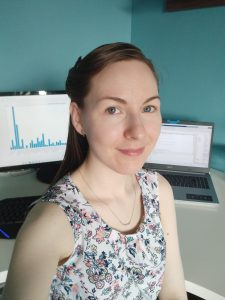
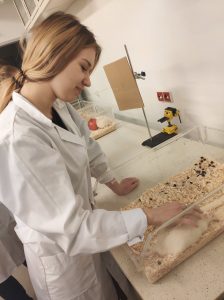
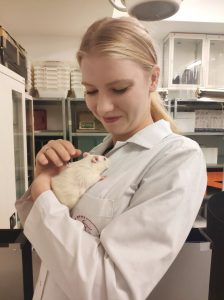 Karolina Kacprzycka joined our BME team to study how words are represented in the human brain. For this she will be using our latest intracranial recordings from Mayo Clinic patients performing tasks to remember words. We hypothesize that bursts of the fast brain waves (aka ‚high frequency oscillations’) in particular brain regions reflect firing of neuronal assemblies that encode particular words. If true, then these fast waves can be used to identify specific words being processed at a given time. One could compare this to ‚reading’ the contents of someone’s mind but, more importantly, this knowledge can support development of therapies that would help people with cognitive deficits to remember names, objects or other facts better. This project is mentored together with our academic exchange fellow from St. Anne’s University Hospital in Brno, Dr. Jan Cimbalnik – a fellow of the prestigous ULAM award from the National Agency for Academic Exchange.
Karolina Kacprzycka joined our BME team to study how words are represented in the human brain. For this she will be using our latest intracranial recordings from Mayo Clinic patients performing tasks to remember words. We hypothesize that bursts of the fast brain waves (aka ‚high frequency oscillations’) in particular brain regions reflect firing of neuronal assemblies that encode particular words. If true, then these fast waves can be used to identify specific words being processed at a given time. One could compare this to ‚reading’ the contents of someone’s mind but, more importantly, this knowledge can support development of therapies that would help people with cognitive deficits to remember names, objects or other facts better. This project is mentored together with our academic exchange fellow from St. Anne’s University Hospital in Brno, Dr. Jan Cimbalnik – a fellow of the prestigous ULAM award from the National Agency for Academic Exchange.Another way to help people remember better is to figure out when they are likely to forget a presented word. Aleksandra Orzoł and Amanda Lier – students of neurobiopsychology at the University of Gdansk – are looking at the eye-tracking data from the same patients to see when the subject’s gaze was fixated on the words or moving around them. These non-invasive eye measures can inform us about specific moments of paying attention and the neuromodulatory systems (e.g. cholinergic and noradrenergic) in the brain that control it. So just by ‚looking’ at the eyes we hope to be able to predict if a given word will be remembered or not. We could then use this signal to time therapeutic interventions like brain stimulation to enhance performance in those moments when memory is likely to fail. This project is led by Dr. Michał Lech – our BME lab expert in clinical applications of eye-tracking technologies. Dr. Lech’s previous experience with eye-tracking in predicting states of consciousness or reading comprehension fits very well with our exploration of memory and the associated cognitive functions.
If you would like to be updated about the new developments in these and other projects in the BME lab you can like our Facebook page and share our news.

